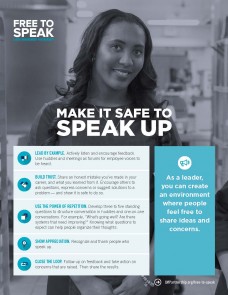- Notice: Undefined variable: toolpreview in lmp_preprocess_node() (line 236 of themes/lmp/lmp.theme).
lmp_preprocess_node(Array, 'node', Array) (Line: 287)
Drupal\Core\Theme\ThemeManager->render('node', Array) (Line: 422)
Drupal\Core\Render\Renderer->doRender(Array, ) (Line: 201)
Drupal\Core\Render\Renderer->render(Array) (Line: 479)
Drupal\Core\Template\TwigExtension->escapeFilter(Object, Array, 'html', NULL, 1) (Line: 60)
__TwigTemplate_e529d65581a60f6df8fc2a68da05ae9f6b6525f71905b7813a000ad6a30abbbc->doDisplay(Array, Array) (Line: 405)
Twig\Template->displayWithErrorHandling(Array, Array) (Line: 378)
Twig\Template->display(Array) (Line: 390)
Twig\Template->render(Array) (Line: 55)
twig_render_template('core/themes/classy/templates/views/views-view-unformatted.html.twig', Array) (Line: 384)
Drupal\Core\Theme\ThemeManager->render('views_view_unformatted', Array) (Line: 422)
Drupal\Core\Render\Renderer->doRender(Array) (Line: 435)
Drupal\Core\Render\Renderer->doRender(Array, ) (Line: 201)
Drupal\Core\Render\Renderer->render(Array) (Line: 479)
Drupal\Core\Template\TwigExtension->escapeFilter(Object, Array, 'html', NULL, 1) (Line: 110)
__TwigTemplate_a792f211d4b539c0b02fc9edf3a0a75a12ed010b5e16476301379bc577b1640c->doDisplay(Array, Array) (Line: 405)
Twig\Template->displayWithErrorHandling(Array, Array) (Line: 378)
Twig\Template->display(Array) (Line: 390)
Twig\Template->render(Array) (Line: 55)
twig_render_template('core/themes/classy/templates/views/views-view.html.twig', Array) (Line: 384)
Drupal\Core\Theme\ThemeManager->render('views_view', Array) (Line: 422)
Drupal\Core\Render\Renderer->doRender(Array) (Line: 435)
Drupal\Core\Render\Renderer->doRender(Array, ) (Line: 201)
Drupal\Core\Render\Renderer->render(Array, ) (Line: 241)
Drupal\Core\Render\MainContent\HtmlRenderer->Drupal\Core\Render\MainContent\{closure}() (Line: 564)
Drupal\Core\Render\Renderer->executeInRenderContext(Object, Object) (Line: 242)
Drupal\Core\Render\MainContent\HtmlRenderer->prepare(Array, Object, Object) (Line: 132)
Drupal\Core\Render\MainContent\HtmlRenderer->renderResponse(Array, Object, Object) (Line: 90)
Drupal\Core\EventSubscriber\MainContentViewSubscriber->onViewRenderArray(Object, 'kernel.view', Object)
call_user_func(Array, Object, 'kernel.view', Object) (Line: 142)
Drupal\Component\EventDispatcher\ContainerAwareEventDispatcher->dispatch(Object, 'kernel.view') (Line: 163)
Symfony\Component\HttpKernel\HttpKernel->handleRaw(Object, 1) (Line: 80)
Symfony\Component\HttpKernel\HttpKernel->handle(Object, 1, 1) (Line: 42)
Drupal\force_password_change\Service\ForcePasswordChangeRedirectMiddleware->handle(Object, 1, 1) (Line: 58)
Drupal\Core\StackMiddleware\Session->handle(Object, 1, 1) (Line: 48)
Drupal\Core\StackMiddleware\KernelPreHandle->handle(Object, 1, 1) (Line: 191)
Drupal\page_cache\StackMiddleware\PageCache->fetch(Object, 1, 1) (Line: 128)
Drupal\page_cache\StackMiddleware\PageCache->lookup(Object, 1, 1) (Line: 82)
Drupal\page_cache\StackMiddleware\PageCache->handle(Object, 1, 1) (Line: 48)
Drupal\Core\StackMiddleware\ReverseProxyMiddleware->handle(Object, 1, 1) (Line: 51)
Drupal\Core\StackMiddleware\NegotiationMiddleware->handle(Object, 1, 1) (Line: 23)
Stack\StackedHttpKernel->handle(Object, 1, 1) (Line: 708)
Drupal\Core\DrupalKernel->handle(Object) (Line: 19)
- Notice: Undefined variable: uncropped_thumbnail_url in lmp_preprocess_node() (line 237 of themes/lmp/lmp.theme).
lmp_preprocess_node(Array, 'node', Array) (Line: 287)
Drupal\Core\Theme\ThemeManager->render('node', Array) (Line: 422)
Drupal\Core\Render\Renderer->doRender(Array, ) (Line: 201)
Drupal\Core\Render\Renderer->render(Array) (Line: 479)
Drupal\Core\Template\TwigExtension->escapeFilter(Object, Array, 'html', NULL, 1) (Line: 60)
__TwigTemplate_e529d65581a60f6df8fc2a68da05ae9f6b6525f71905b7813a000ad6a30abbbc->doDisplay(Array, Array) (Line: 405)
Twig\Template->displayWithErrorHandling(Array, Array) (Line: 378)
Twig\Template->display(Array) (Line: 390)
Twig\Template->render(Array) (Line: 55)
twig_render_template('core/themes/classy/templates/views/views-view-unformatted.html.twig', Array) (Line: 384)
Drupal\Core\Theme\ThemeManager->render('views_view_unformatted', Array) (Line: 422)
Drupal\Core\Render\Renderer->doRender(Array) (Line: 435)
Drupal\Core\Render\Renderer->doRender(Array, ) (Line: 201)
Drupal\Core\Render\Renderer->render(Array) (Line: 479)
Drupal\Core\Template\TwigExtension->escapeFilter(Object, Array, 'html', NULL, 1) (Line: 110)
__TwigTemplate_a792f211d4b539c0b02fc9edf3a0a75a12ed010b5e16476301379bc577b1640c->doDisplay(Array, Array) (Line: 405)
Twig\Template->displayWithErrorHandling(Array, Array) (Line: 378)
Twig\Template->display(Array) (Line: 390)
Twig\Template->render(Array) (Line: 55)
twig_render_template('core/themes/classy/templates/views/views-view.html.twig', Array) (Line: 384)
Drupal\Core\Theme\ThemeManager->render('views_view', Array) (Line: 422)
Drupal\Core\Render\Renderer->doRender(Array) (Line: 435)
Drupal\Core\Render\Renderer->doRender(Array, ) (Line: 201)
Drupal\Core\Render\Renderer->render(Array, ) (Line: 241)
Drupal\Core\Render\MainContent\HtmlRenderer->Drupal\Core\Render\MainContent\{closure}() (Line: 564)
Drupal\Core\Render\Renderer->executeInRenderContext(Object, Object) (Line: 242)
Drupal\Core\Render\MainContent\HtmlRenderer->prepare(Array, Object, Object) (Line: 132)
Drupal\Core\Render\MainContent\HtmlRenderer->renderResponse(Array, Object, Object) (Line: 90)
Drupal\Core\EventSubscriber\MainContentViewSubscriber->onViewRenderArray(Object, 'kernel.view', Object)
call_user_func(Array, Object, 'kernel.view', Object) (Line: 142)
Drupal\Component\EventDispatcher\ContainerAwareEventDispatcher->dispatch(Object, 'kernel.view') (Line: 163)
Symfony\Component\HttpKernel\HttpKernel->handleRaw(Object, 1) (Line: 80)
Symfony\Component\HttpKernel\HttpKernel->handle(Object, 1, 1) (Line: 42)
Drupal\force_password_change\Service\ForcePasswordChangeRedirectMiddleware->handle(Object, 1, 1) (Line: 58)
Drupal\Core\StackMiddleware\Session->handle(Object, 1, 1) (Line: 48)
Drupal\Core\StackMiddleware\KernelPreHandle->handle(Object, 1, 1) (Line: 191)
Drupal\page_cache\StackMiddleware\PageCache->fetch(Object, 1, 1) (Line: 128)
Drupal\page_cache\StackMiddleware\PageCache->lookup(Object, 1, 1) (Line: 82)
Drupal\page_cache\StackMiddleware\PageCache->handle(Object, 1, 1) (Line: 48)
Drupal\Core\StackMiddleware\ReverseProxyMiddleware->handle(Object, 1, 1) (Line: 51)
Drupal\Core\StackMiddleware\NegotiationMiddleware->handle(Object, 1, 1) (Line: 23)
Stack\StackedHttpKernel->handle(Object, 1, 1) (Line: 708)
Drupal\Core\DrupalKernel->handle(Object) (Line: 19)
- Notice: Undefined variable: thumbnail_uri in lmp_preprocess_node() (line 238 of themes/lmp/lmp.theme).
lmp_preprocess_node(Array, 'node', Array) (Line: 287)
Drupal\Core\Theme\ThemeManager->render('node', Array) (Line: 422)
Drupal\Core\Render\Renderer->doRender(Array, ) (Line: 201)
Drupal\Core\Render\Renderer->render(Array) (Line: 479)
Drupal\Core\Template\TwigExtension->escapeFilter(Object, Array, 'html', NULL, 1) (Line: 60)
__TwigTemplate_e529d65581a60f6df8fc2a68da05ae9f6b6525f71905b7813a000ad6a30abbbc->doDisplay(Array, Array) (Line: 405)
Twig\Template->displayWithErrorHandling(Array, Array) (Line: 378)
Twig\Template->display(Array) (Line: 390)
Twig\Template->render(Array) (Line: 55)
twig_render_template('core/themes/classy/templates/views/views-view-unformatted.html.twig', Array) (Line: 384)
Drupal\Core\Theme\ThemeManager->render('views_view_unformatted', Array) (Line: 422)
Drupal\Core\Render\Renderer->doRender(Array) (Line: 435)
Drupal\Core\Render\Renderer->doRender(Array, ) (Line: 201)
Drupal\Core\Render\Renderer->render(Array) (Line: 479)
Drupal\Core\Template\TwigExtension->escapeFilter(Object, Array, 'html', NULL, 1) (Line: 110)
__TwigTemplate_a792f211d4b539c0b02fc9edf3a0a75a12ed010b5e16476301379bc577b1640c->doDisplay(Array, Array) (Line: 405)
Twig\Template->displayWithErrorHandling(Array, Array) (Line: 378)
Twig\Template->display(Array) (Line: 390)
Twig\Template->render(Array) (Line: 55)
twig_render_template('core/themes/classy/templates/views/views-view.html.twig', Array) (Line: 384)
Drupal\Core\Theme\ThemeManager->render('views_view', Array) (Line: 422)
Drupal\Core\Render\Renderer->doRender(Array) (Line: 435)
Drupal\Core\Render\Renderer->doRender(Array, ) (Line: 201)
Drupal\Core\Render\Renderer->render(Array, ) (Line: 241)
Drupal\Core\Render\MainContent\HtmlRenderer->Drupal\Core\Render\MainContent\{closure}() (Line: 564)
Drupal\Core\Render\Renderer->executeInRenderContext(Object, Object) (Line: 242)
Drupal\Core\Render\MainContent\HtmlRenderer->prepare(Array, Object, Object) (Line: 132)
Drupal\Core\Render\MainContent\HtmlRenderer->renderResponse(Array, Object, Object) (Line: 90)
Drupal\Core\EventSubscriber\MainContentViewSubscriber->onViewRenderArray(Object, 'kernel.view', Object)
call_user_func(Array, Object, 'kernel.view', Object) (Line: 142)
Drupal\Component\EventDispatcher\ContainerAwareEventDispatcher->dispatch(Object, 'kernel.view') (Line: 163)
Symfony\Component\HttpKernel\HttpKernel->handleRaw(Object, 1) (Line: 80)
Symfony\Component\HttpKernel\HttpKernel->handle(Object, 1, 1) (Line: 42)
Drupal\force_password_change\Service\ForcePasswordChangeRedirectMiddleware->handle(Object, 1, 1) (Line: 58)
Drupal\Core\StackMiddleware\Session->handle(Object, 1, 1) (Line: 48)
Drupal\Core\StackMiddleware\KernelPreHandle->handle(Object, 1, 1) (Line: 191)
Drupal\page_cache\StackMiddleware\PageCache->fetch(Object, 1, 1) (Line: 128)
Drupal\page_cache\StackMiddleware\PageCache->lookup(Object, 1, 1) (Line: 82)
Drupal\page_cache\StackMiddleware\PageCache->handle(Object, 1, 1) (Line: 48)
Drupal\Core\StackMiddleware\ReverseProxyMiddleware->handle(Object, 1, 1) (Line: 51)
Drupal\Core\StackMiddleware\NegotiationMiddleware->handle(Object, 1, 1) (Line: 23)
Stack\StackedHttpKernel->handle(Object, 1, 1) (Line: 708)
Drupal\Core\DrupalKernel->handle(Object) (Line: 19)



